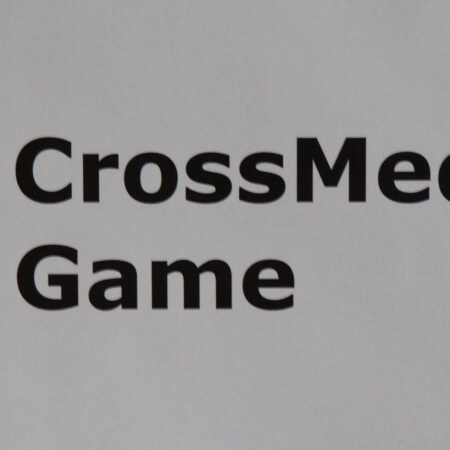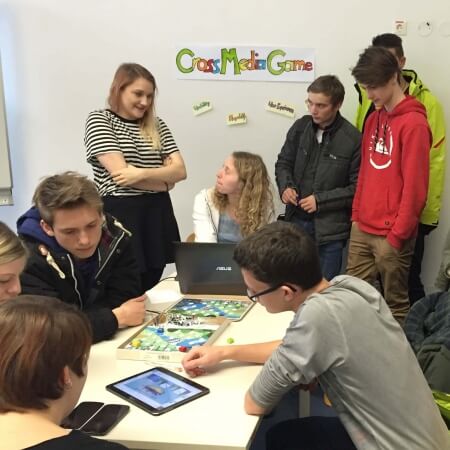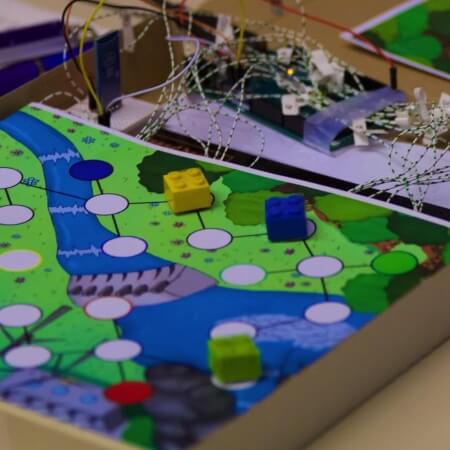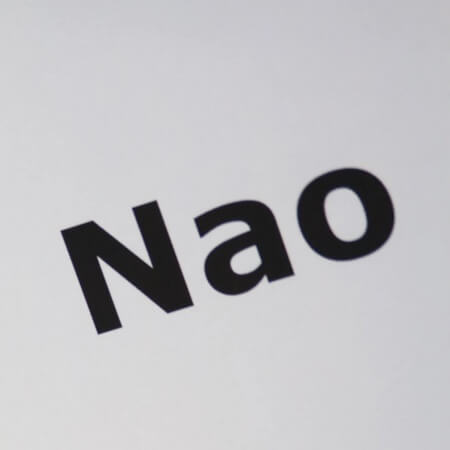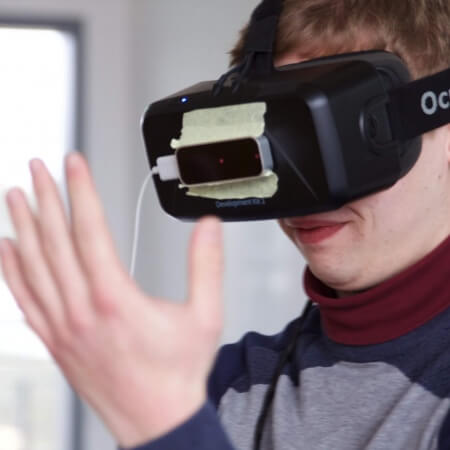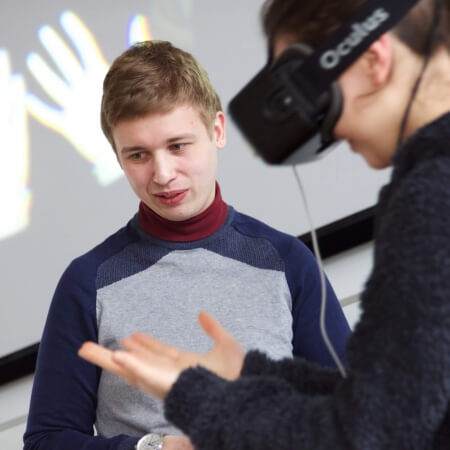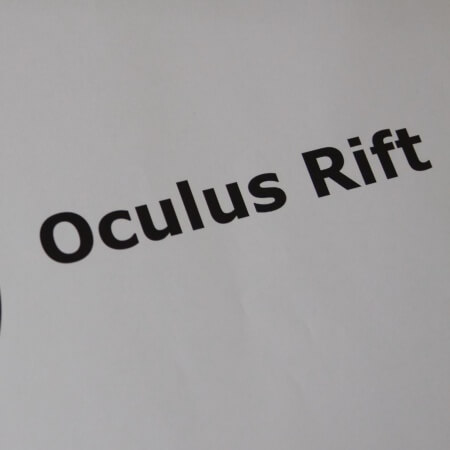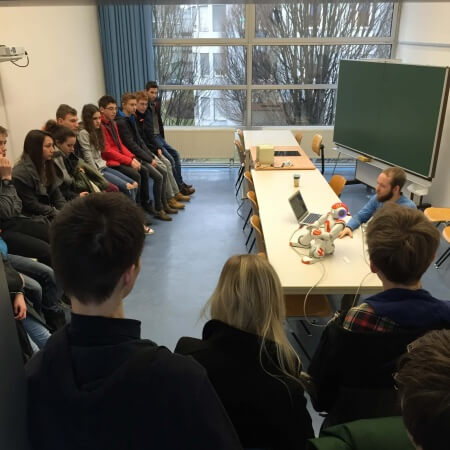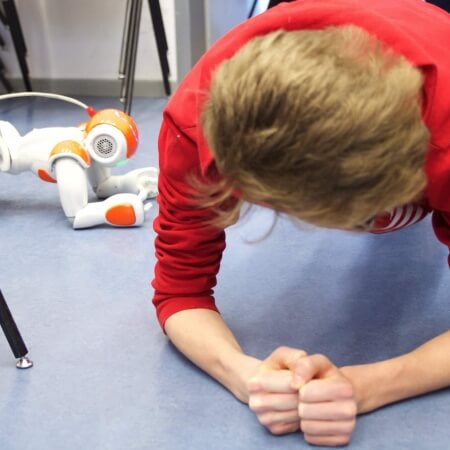On the 3rd of February, the Department of Computer Science organized their yearly open day for pupils (I-DAY). A variety of short lectures were attended by 160 pupils , in addition to trying out different prototypes developed by students or demonstrations at seven stations.
For the Center for HCI, Christiane Moser, Michaela Peterhansl, Cornelia Zenz, and Annabell Wieser presented their CrossMediaGame “Explore Planet Earth” at one station. The CrossMediaGame combines the best of analogue and digital games, i.e., it uses a classical approach for the board game which takes place on a patch panel and is combined with the freedom of digital games centered in the tablet app. The game is targeted for children 8-12 years, to learn about the earth while playing the game with their families. The pupils were fascinated in the tangible nature of the user interface (i.e., the board and its game characters) and the combination with a tablet for dicing and answering questions. They were very interested in the game and asked a lot questions about the implementation and specifically about the communication of the board with the tablet.
Martin Wuchse demonstrated the combination of the Oculus Rift with a Leap Motion controller to show how reality can be embedded in a virtual reality world at another station. The pupils could experience how new technology can be combined and in which fields it would make sense to apply them to. While most of the pupils were already familiar with the Oculus Rift, they felt astonished to see their own hands in a virtual world by combining it with a Leap Motion controller. Some pupils even had already worked with the Oculus Rift in their school in the gaming context. Therefore, they were fascinated by thinking about interacting with virtual system, displayed with the Oculus Rift.
Markus Miksch provided the pupils the possibility to gather first insights and experiences in the research field of Human-Robot Interaction (HRI) at another station. The pupils were shown, in a live demo, how to program a NAO robot and the work completed within his bachelor thesis on how people react to robots that make a mistake. Finally, the pupils could beat the NAO in the Plank-Challenge. Despite the great physical effort the pupils had to put into the challenge, they were excited about the robot and would have loved to take it home.
